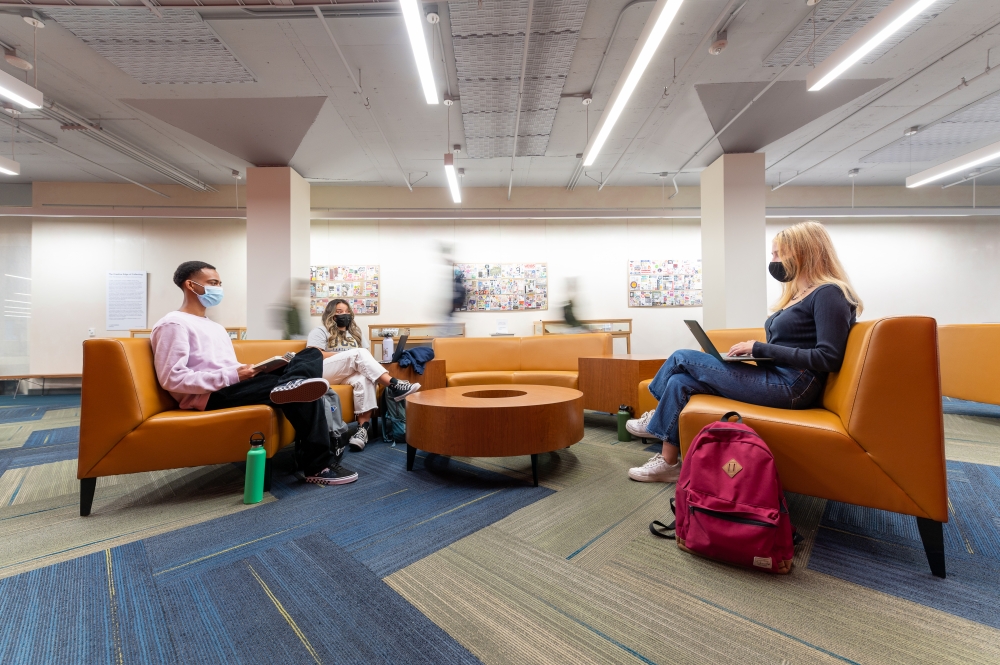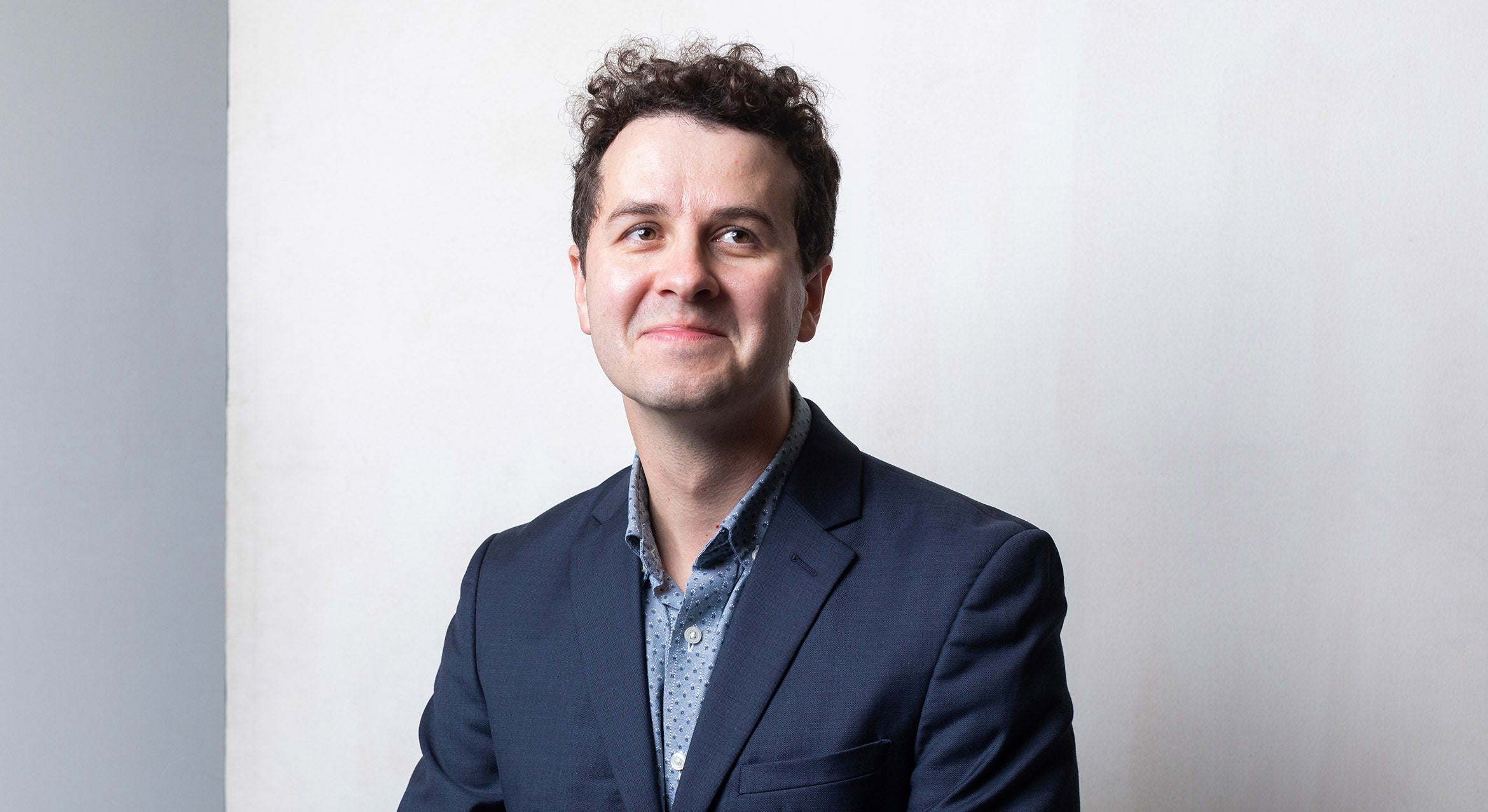
Omicron and Beyond
How does Omicron compare to Delta?
Omicron appears to be more contagious, but less virulent, than the delta variant.
Omicron is about two times more likely to infect an individual than delta. This is due in part to the ability of omicron to partially evade immunity gained from vaccines or previous infection.
Vaccines were remarkably effective at preventing the spread of the delta variant between individuals. However, vaccines are less effective at preventing the spread of omicron between vaccinated individuals. The vaccines help reduce spread of omicron, but they are not as effective as with delta.
The reduced ability of vaccines to stop infections with omicron (compared to delta) is not an argument against the continued use of vaccines and boosters. The vaccines remain incredibly effective at decreasing the chance of developing severe disease in vaccinated individuals who contract the virus.
Omicron causes less severe illnesses in vaccinated individuals than the delta variant. “If you got infected with the omicron variant, you’re half as likely to end up in the hospital, and you’re half as likely to go to an ICU compared to an infection with delta,” said Professor Scott Grafton, UCSB’s COVID mitigation program coordinator. “Vaccinated persons who get a breakthrough infection with omicron do not end up on ventilators.”
Yet again, this is not an argument against receiving a vaccine or booster. Vaccinated and boosted individuals are 15 times less likely to be hospitalized after contracting Omicron than their unvaccinated counterparts.
Are certain groups more at risk from Omicron?
Those with compromised immune systems and susceptibility to respiratory infections have a higher risk from all variants of SARS-CoV-2 (the virus that causes COVID-19). With previous variants of SARS-CoV-2 older age was a very significant risk factor as well. Recent research conducted by Kaiser Permanente in Southern California suggests that Omicron poses less of a risk to older people. Hospitalizations (mostly in unvaccinated persons) are occurring across all adult ages.
Is Omicron waning? Are we seeing signs of that here?
Nationally, many states have already passed the peak and their case counts are dropping steeply: N.Y., N.J., R.I., Fla., Mass., Colo., Conn., Pa., Ill., La. In California, the Bay Area and Los Angeles County have already passed the peak. The peak in Santa Barbara County was during the week of January 7-10.
Are we moving toward COVID as endemic, and what does or would that mean?
Both the World Health Organization and Dr. Anthony Fauci have recently commented that we may be heading into an endemic phase now. What this will mean for all of us is still unclear. Provided a problematic new variant does not emerge, the good news is that those with immunity from vaccines or prior infection are unlikely to develop severe illness, even if there are recurrent surges of delta or omicron.
Why did winter quarter courses start remotely?
The university took instruction remote at the beginning of winter 2022 not due to concerns over campus safety and the spread of illness. The mitigation strategies in place on campus, particularly universal vaccination including a booster and masking, continue to be remarkably effective at blocking on campus transmission. Rather, the decision was made in order to allow students and instructors to navigate any COVID-related health issues or delays, such as isolation requirements, without worrying about missing classes. It would also enable those who needed to get their boosters to do so.
The decision also provided time for the university to process the large number of COVID tests as students, staff and faculty returned from the holidays. In short, the decision was based primarily on logistical concerns and was not a reflection of heightened concern about the danger posed to our fully vaccinated and masked campus community, or about increased transmission in the broader community due to campus operations.
Campus has remained open even while most classes are remote, including housing, student support services, Student Health, the library, and the RecCen.
What will happen after the return to on-site activities?
Students who choose to remain off-campus while courses are remote should return as soon as possible before the resumption of in-person instruction on January 31 in order to obtain a COVID-19 PCR test on campus and, if necessary, complete the five-day isolation period if they receive a positive result.
Appointments for in-person tests at Loma Pelona, or to drop off a self-collected test at Loma Pelona can be made via the Student Health Patient Portal. (The self-collected saliva PCR tests using the tube contained in a “drop off” baggie are available at the front desk at many campus housing facilities as well as the mountain side entrance to the Library and Information Desks at the Student Resources Building and the RecCen.)
All indoor spaces on campus, including research spaces, remain subject to the masking requirement. Additionally, weekly testing is required for all unvaccinated students, faculty and staff, — includingn those who are eligible for COVID-19 boosters but have not yet received them — who wish to access campus facilities, including campus-owned housing.
All students who live in campus-owned housing, who work, attend classes or conduct research on campus, or who want to access campus facilities must complete the COVID-19 screening survey every day. The same is true for all faculty and staff wishing to access campus facilities. The daily survey is available through the Student Health Patient Portal.
What are the new vaccine requirements?
All UC employees and students must be fully vaccinated against the SARS-CoV-2 (COVID-19) virus, including a booser dose if eligible, or have received an approved exemption before they will be allowed in any UC facility/office or participate in any university programs.
Booster eligible students must receive the required COVID-19 vaccine booster by January 31, 2022. Booster eligible faculty and staff must receive a booster dose by February 4, 2022. More details are available at UC Santa Barbara’s COVID-19 website.
Flu vaccines also are mandatory for anyone seeking access to UC facilities. You can learn more on the vaccine section of the COVID-19 website.
Where can I get a vaccine?
UC Santa Barbara, in partnership with the Santa Barbara County Public Health Department, are offering vaccine and booster clinics in Isla Vista. The clinics are open to the public, and offer first, second, and booster shots of Pfizer, Moderna and J&J vaccines. You can schedule an appointment at MyTurn.ca.gov, though walk-ins are welcome at the end of each booster clinic day.
The clinic will be open from 10 a.m. to 4 p.m. on Tuesdays and Fridays through the end of February — remaining dates are Jan. 28, Feb. 1, 4, 8, 11, 15, 18, 22 and 25. The address is: 935 Embarcadero del Norte, Isla Vista, CA 93117.
You can also receive a vaccine or booster at many pharmacies in the country. Learn more about your options at MyTurn.ca.gov.
How can I get a COVID test?
Students, faculty and staff can make an appointment for a COVID-19 PCR test at the Student Health Patient Portal. Zip lock baggies containing a self-collected saliva test kit can be picked up at the front desk of many campus housing facilities as well as the information desk at the RecCen, Loma Pelona, the Library (mountain entrance) or the Student Resource Building information desk. Appointments must be made to drop off the kit, and samples must be dropped off within 4 hours of preparation.
What type of tests does the university use?
Most of the tests conducted at the university are PCR-based tests, which detect genetic material from the virus in samples. These include the in-person nasal swabs and drop-off saliva tests. Due to their incredible sensitivity, PCR tests serve as the backbone of UC Santa Barbara’s COVID testing program. Results from these tests are usually available within 24 hours.
The university may supply at-home rapid antigen tests, which detect the SARS-CoV-2 viral protein and can produce results within minutes. A message has been sent to departmental representatives detailing how to request antigen kits for their unit.
It is very important to appreciate that antigen tests are not nearly as sensitive as PCR tests and they do not substitute for PCR tests. On the other hand, rapid antigen tests are excellent if the circumstances require test results within approximately 30 minutes rather than 24 hours. For example, antigen tests may be appropriate for invited campus guests such as seminar speakers, job applicants or other official visitors upon their arrival to the campus. They also may be appropriate for students taking in-person courses where there is close person-to-person contact without masks, such as a rehearsal for a dramatic production. Finally, people who test positive for COVID-19 should use a rapid antigen test to determine when their infection has cleared since the extraordinary sensitivity of the PCR test can continue to detect non-infectious remnants of the viral infection for up to 3 months following resolution of the infection.
Four rapid antigen tests are now available to every residential address in the U.S., courtesy of the federal government. The at-home rapid testing kits can be ordered, at no charge, via the website COVIDtests.gov. Orders will ship free starting in late January.
Why does the university use multiple tests?
As noted above, PCR tests and antigen tests are complementary. In most cases, the PCR test is preferable owing to its remarkable sensitivity. However, in some circumstances (see above), an antigen test is preferable.
What is UC Santa Barbara’s testing capacity?
As of mid-January, the university is capable of processing 2,500 COVID-19 PCR tests per day. Many of these tests are performed in our clinically certified UCSB COVID-19 laboratory and some are sent out to nearby laboratories.
What if I test positive for COVID-19?
Regardless of your vaccination status, if you test positive for COVID-19 you must remain isolated for at least 5 days following your positive test result or for 5 days from the onset of symptoms, whichever starts earliest. Isolation days are counted by adding 5 to the start date, e.g., if a positive test occurred January 1, your isolation would end after January 6.
It is strongly recommended that you obtain a COVID-19 rapid antigen test on day 5 or later of your isolation to prove you have cleared your infection. Isolation should continue for a full 10 days if you have a positive rapid antigen test after day 5, or continued symptoms or a fever.
What if I am exposed to COVID-19?
If you are fully vaccinated and have received your booster shot, with no symptoms; or have had COVID-19 within the last 90 days, with no symptoms:
o A COVID test (PCR or rapid antigen test) now and 5 days after the last known exposure is strongly recommended
o Quarantine is not necessary; self-monitor for any COVID symptoms for 10 days
o Protect unvaccinated or immunocompromised individuals at home by wearing a face mask for 14 days
If you are unvaccinated, partially vaccinated, or are eligible for a COVID vaccine booster shot and have not yet received it:
o Quarantine for 5 days after your last contact with the person who has COVID-19, regardless of symptoms or test result
o A COVID-19 test (PCR or rapid antigen test) 5 days after the last known exposure is strongly recommended. Campus COVID-19 PCR testing is available without charge for students, faculty and staff by making an appointment through the Student Health Patient Portal.
o You may return to school or work after 5 days of quarantine as long as you have no symptoms of COVID-19.
Where can I learn more about the campus’s COVID response?
More COVID-related information and resources are available on the COVID-19 information website. You can also send questions or requests to ucsb-covid19@ucsb.edu.



